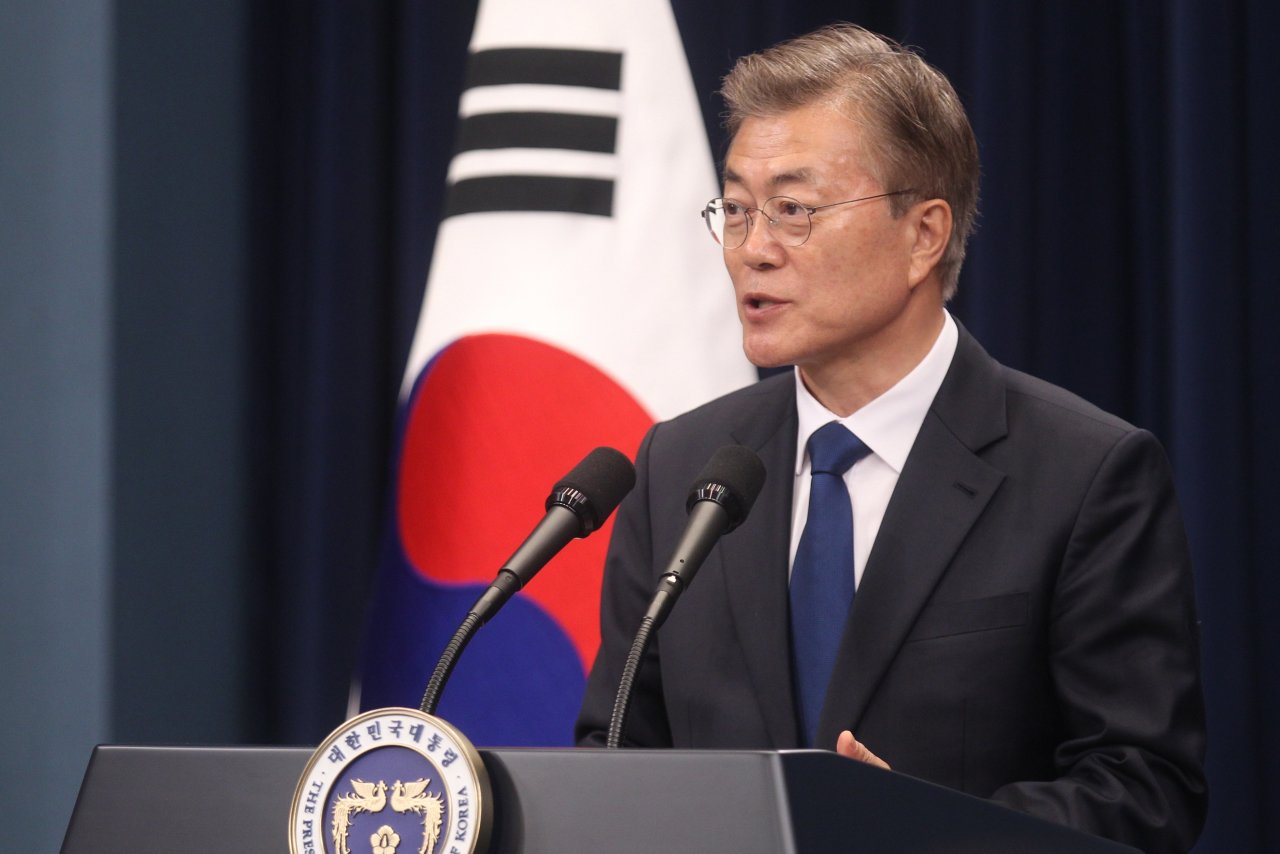As North and South Korea gear up for their first summit in over a decade this Friday, many South Koreans have lowered their expectations since previous summits, hoping for peace rather than any swift reunification.

While often still couched in the rhetoric of eventual unification – especially by the North Koreans – this round of inter-Korean detente has seen South Korean President Moon Jae-in target peace and reconciliation as a more pragmatic goal.
Moon will meet North Korean leader Kim Jong Un at the border village of Panmunjom in Friday’s summit. Previous summits between the two sides were held in 2000 and 2007.
To many South Koreans, the idea of unification has grown distant, if not far-fetched, over the 65 years since the war with North Korea ended in a truce. Legacies of the bloody Korean War, decades of military provocations and threats, and Pyongyang’s pursuit of nuclear weapons have left deep divisions.
There’s no idea on how the autocratic Kim and his regime will fit into a unified Korea. At another level, the South has grown to become Asia’s fourth-largest economy, leaving many South Koreans feeling they may have more to lose than gain from any merger with the poverty-stricken North.
“South Korea now stands shoulder-to-shoulder with advanced countries after having climbed up from being one of the poorest countries in the world, thanks to the blood and sweat of our parents’ generation,” said Park Jung-ho, a 35-year-old office worker in Seoul.
“After unification, everything will go back to as it was when we were a developing country,” Park said.
It was not possible to gauge how people in secretive North Korea feel about the summit. But the North’s official Rodong Sinmun newspaper said last week there was “steel-strong will for reunification” and described Kim as “the peerlessly great man taking the helm of the history and steering the trend of the world”.
In Seoul, office worker Suji Lee, 31, said unification would only bring about economic havoc in the South and suggested the two Koreas would be better off as separate countries.
“Remoteness and damage,” Lee said, when asked the first thing that came to mind when she thought of unification.
An annual report by the Seoul National University (SNU) on how South Koreans perceive unification said South Koreans are roughly equally divided on whether unification is necessary, but the percentage of those who strongly support it has fallen steadily from when the report was first published in 2007.
Last year, 53.8 percent of respondents said they view unification as “necessary,” compared with more than 63 percent in 2007.
The fact that Koreans on both sides of the peninsula are of the same ethnicity has always been the biggest reason for supporting unification, the report said, but this has lost backing over the years. In 2007, 50.7 percent of South Koreans who supported unification pointed to ethnic identity as the biggest reason, while in 2017, 40.3 percent did.
Over the same period, reducing military tension has gained support as a reason for unification, according to the SNU survey.
A quarterly poll conducted by the South’s National Unification Advisory Council in March showed 50.3 percent of those surveyed believe denuclearisation should be the top agenda at the summit, while easing military tensions followed with 36.8 percent.
Those who projected unification would happen within the next decade accounted for 23.5 percent of those polled, while those who saw unification would never come accounted for 18.3 percent, the second largest portion. The rest of the respondents forecast unification in other time periods.
Daniel Han, a 37-year-old who works for a state-run company, said he supported eventual unification because of the potential economic opportunities of a unified Korea.
“There are many worries over the cost of unification, but when looking at the miracle on the Rhine in Germany, or the geopolitical location of the Korean peninsula, unification has more benefits than losses,” Han said.
Older South Koreans tend to lean more towards unifying the two Koreas, as they or their parents still remember what it was like when North and South were one.
“We’re the same people. We use the same language, we look the same. Of course we should unify,” said 89-year-old Korean War veteran Kim Yong-cheol.
“Why should we, as a same people, live as enemies? All we have to do is forgive a little.”
Corporate manager Kwon Tae-yun, 54, said he was for unification, although it could come at a price.
“We would have more places to go on the weekend and could take the train to China, even to Europe,” he said, since unification would provide a land link with China.
“At the same time we probably won’t get our pensions and I’ll end up farming potatoes in the countryside.”
Kindly follow us on twitter:@AfricanVoice2











